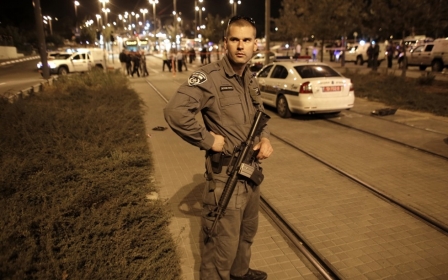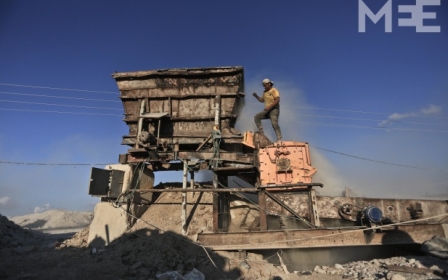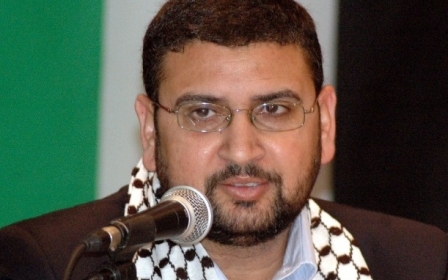Thinking the unthinkable: Protecting Palestinians

In a recent article for Middle East Eye, I show that the advocates of Responsibility to Protect (R2P) - who in the name of supposedly helping Libyans, helped launch NATO’s catastrophic 2011 Libyan war - did not demand protection for Gazans during Israel’s Operation Protective Edge, even though humanitarian conditions in Gaza were worse than they had been in Libya at the time R2P was invoked in that country.
Some misguided sympathisers with the Palestinian cause suggest applying R2P in the case of Gaza. That position is certainly not helpful for Palestinians; R2P is a form of imperialism that tends to make life worse for the population allegedly being helped. An R2P mission will at any rate not actually be undertaken against Israel, because that would require either that the UN Security Council grants authorisation, which the US would never allow, or that NATO intervenes illegally, as it did in its bombing of Serbia.
But NATO is about as likely to bomb Israel in the name of stopping racist violence as it is to stop the conflict in Ferguson, Missouri. Yet, in an effort to gain insight into how Palestinian suffering is perceived in the West, it is worth asking: Given that Gaza has all of the features of a humanitarian crisis, why is it so seldom discussed in those terms? That Palestinians are the victims of the US, EU, Canada and one of their closest Middle East allies is the central underlying reason that R2P cheerleaders get laryngitis when Gazans are being slaughtered. But it is worth examining the specific ways these dynamics manifest themselves.
For most western intellectuals, the idea of a responsibility to protect Palestinians from Israel and its allies is in a very real, deeply political sense, unthinkable. As Maya Mikdashi argues, Palestinians, especially Palestinian men, “are put in the self-defeating position of having to fight to be recognised as human, to be recognised in death and in life as victims of Israeli policies and actions.” One reason for this situation is that R2P narrates the population purportedly being rescued as defenceless.
Decades-long western support for Israel has ensured that the conflation of all Palestinian armed struggle with terrorism has been pervasive enough that the idea of Palestinians as abject victims is foreign to the western public. A major reason for the latter is that Palestinians demonstrably have fairly effective resistance movements. In that sense, the very absence of humanitarian imperialists calling for the protection of Palestinians from Israeli violence should be seen as a victory of anti-colonial struggle. Palestinians cannot plausibly be seen as helpless because they have repeatedly managed to impede Israel and its western allies from achieving some of their goals.
Similarly, R2P frameworks require that whomever is seen to be violating human rights on a massive scale be understood as a ruthless despot, preferably a cartoonish one. In western discourse, this cannot apply to the Israeli ruling class for several reasons. There is the conflation of Israel with Jewishness. Because of the massive horrors that have historically been visited upon Jewish people, it is unlikely that much traction will be gained by a narrative in which the self-described State of the Jewish People ruthlessly kills and dispossesses civilians and refugees.
Moreover, unlike someone such as Gaddafi, western intellectuals cannot see Israel’s leaders as one-dimensional evil caricatures because Israeli officials are too much like the western leaders who for decades have played the part of the good guy in representations of international conflicts in Hollywood, the news, or the classroom.
Israeli leaders are too central to the imperialist world system to be cast as conscienceless savages in the way that R2P frameworks demand, as the Israeli ruling class is widely understood as the frontline in the struggle between European civilisation and Arab-Muslim barbarism. Israel is inoculated against the simplistic demonisation that an R2P narrative requires because it is the custodian of a globalised neo-liberal capitalist plutocracy, a self-styled Silicon Valley in the Levant, and a nominally democratic settler-colonial society.
In that sense, Israeli violence is violence on behalf of the West. Accordingly, it is read as a legitimate defence against existential terror and backwardness, whereas, by contrast, the violence of an eccentric, (fitfully) anti-western ruler like a Gaddafi is legible only as maniacal cruelty.
Finally, the notion of “protecting” Gaza from Israeli-western attack is virtually incomprehensible to humanitarian interventionists because of the character of R2P itself. At issue here are two distinct but intimately linked facets of imperialism running up against each other. The ideological terrain of R2P is the paternalistic facet of imperialism, whereas the policy Israel and the West pursue in Gaza is more or less exclusively that dimension of imperialism expressed by plunder and unvarnished mass terror.
Often, in Afghanistan for example, these are complementary. However, Gaza is not a candidate for R2P, because there empire’s iron fist takes precedence over its humanitarian veneer. R2P and Israeli depredations in Palestine are both forms of colonialism, so western intellectuals cannot conceive of applying R2P to Gaza because that would be fundamentally no different from demanding that NATO undertake an R2P mission to prevent the civilians being killed by NATO in an R2P mission.
R2P’s intellectual advocates in the West do not apply that doctrine to Gaza because deep-rooted colonial destruction already exists in Gaza. R2P cannot apply to Gaza because R2P and the destruction of Gaza are aspects of the same process, namely the domination by western state-capital and its international cohorts of the Global South.
- Gregory Shupak is an author and activist who teaches Media Studies at the University of Guelph in Canada.
The views expressed in this article belong to the author and do not necessarily reflect the editorial policy of Middle East Eye.
Photo: Palestinians walk among the destruction in Gaza (MEE/Mohammed Asad)
New MEE newsletter: Jerusalem Dispatch
Sign up to get the latest insights and analysis on Israel-Palestine, alongside Turkey Unpacked and other MEE newsletters
Middle East Eye delivers independent and unrivalled coverage and analysis of the Middle East, North Africa and beyond. To learn more about republishing this content and the associated fees, please fill out this form. More about MEE can be found here.





